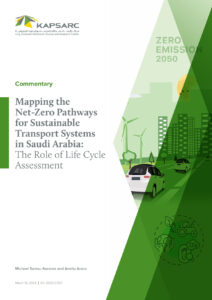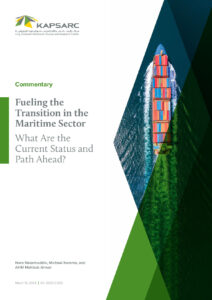
Mapping the Net-Zero Pathways for Sustainable Transport Systems in Saudi Arabia: The Role of Life Cycle Assessment
Net-zero pathways have become a key climate goal that can help promote a carbon-neutral future by balancing anthropogenic greenhouse gas (GHG) emissions with emissions removed from the atmosphere. These pathways provide strategic frameworks and roadmaps for countries to reduce GHG emissions significantly.
18th March 2024
